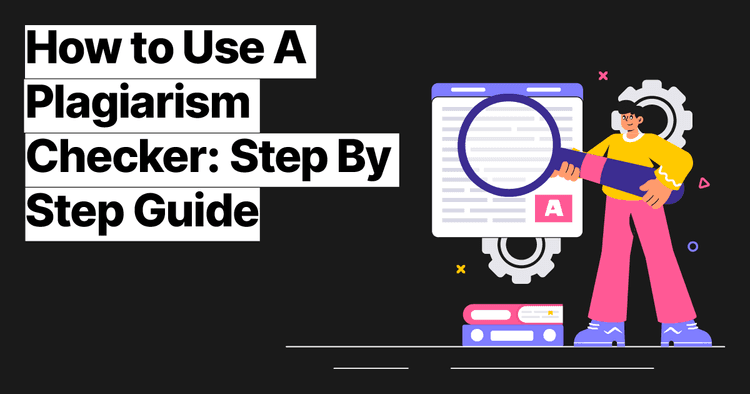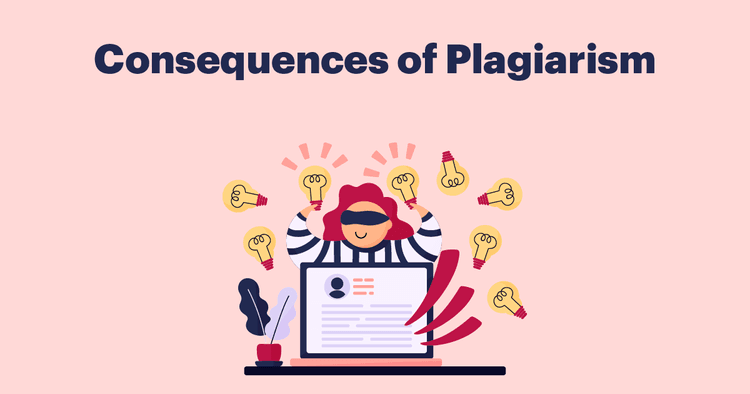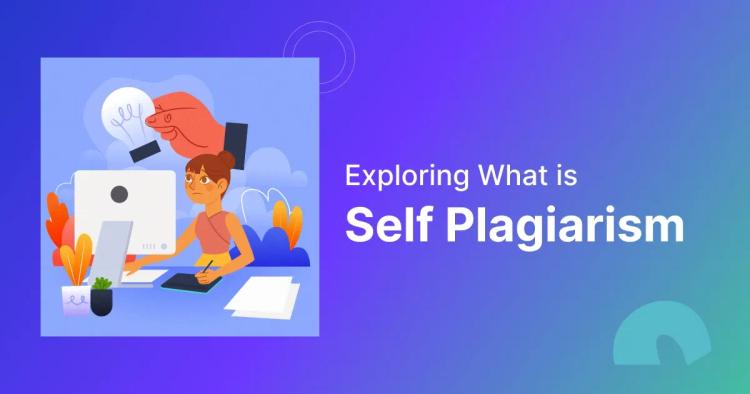In today's world, where information is readily accessible and ideas are constantly being exchanged, the value of originality and integrity cannot be overstated.
Plagiarism, the act of presenting someone else's work or ideas as one's own without proper attribution, is a clear violation of ethics in academia and professional settings. It undermines the principles of honesty, fairness, and respect that form the foundation of ethical behaviour.
To understand the gravity of this issue, we must delve deeper into the concept of plagiarism, its implications and why is plagiarism a violation of ethics.
ᴀᴅᴠᴇʀᴛɪsᴇᴍᴇɴᴛ
Understanding Plagiarism
Plagiarism takes various forms, ranging from outright copying of text to paraphrasing without giving credit to the source. It is not limited to any particular domain but can be observed in academia, journalism, and creative work.
Consider a student who copies an entire essay from an online source, a journalist who reproduces someone else's article without acknowledgement, or a songwriter who plagiarizes melodies from existing songs.
These examples illustrate the widespread nature of plagiarism and the need to address it.
Consequences of Plagiarism
Plagiarism has severe consequences that extend beyond academic penalties. In educational institutions, students found guilty of plagiarism may face disciplinary action, such as failing a course, suspension, or even expulsion.
Moreover, plagiarizing someone's work can result in legal ramifications, including copyright infringement lawsuits. Beyond the legal and academic realms, plagiarism can tarnish an individual's personal and professional reputation, leading to long-lasting damage and loss of trust.
Ethical Considerations
At the core of plagiarism lies a disregard for intellectual property and the value of original work. Each creation, whether it be an academic paper, a journalistic piece, or a creative masterpiece, represents the time, effort, and expertise of its creator.
Plagiarism not only steals these intellectual contributions but also undermines the rights and recognition that creators deserve.
By respecting others' ideas and efforts, we uphold the principles of fairness and integrity that form the basis of ethical conduct in academic and professional environments.
The Role of CopyChecker’s Plagiarism Checker
To combat the issue of plagiarism effectively, we turn to tools like CopyChecker, a reliable and user-friendly plagiarism checker. CopyChecker plays a crucial role in detecting and preventing plagiarism by comparing a given piece of content against a vast database of existing works.
By highlighting similarities and providing detailed reports, CopyChecker empowers writers, educators, and publishers to ensure the originality and integrity of their work.
ᴀᴅᴠᴇʀᴛɪsᴇᴍᴇɴᴛ
Advantages of Using CopyChecker
One of the critical advantages of CopyChecker is its accuracy and reliability in plagiarism detection. By employing sophisticated algorithms, it can identify even subtle instances of plagiarism, giving users confidence in the integrity of their work.
Additionally, CopyChecker saves valuable time for writers and educators, offering efficient scanning and comprehensive reports that help pinpoint potential issues. Furthermore, by proactively detecting and preventing unintentional plagiarism, CopyChecker promotes a culture of responsible writing.
Promoting Academic Integrity
Academic institutions have a responsibility to foster a culture of academic integrity. By encouraging responsible research and citation practices, educators play a vital role in shaping students' understanding of plagiarism and its consequences.
Teaching proper citation styles and formats, along with the significance of accurate referencing, equips students with the knowledge to avoid plagiarism.
Employing online plagiarism detectors like CopyChecker as a part of the educational process helps instil in students a sense of originality and ethical writing.
Cultural and Global Perspective
Geographical or cultural boundaries do not limit plagiarism. It is essential to recognize and address cross-cultural perspectives on plagiarism to establish consistent standards and expectations worldwide.
By acknowledging the impact of diverse cultural values and practices, we can work towards global collaboration and innovation while upholding the principles of ethics and originality.
Academic Honesty and Intellectual Growth
The importance of academic honesty goes beyond avoiding penalties. It lies in the inherent value of personal and intellectual growth. By engaging in original work, students develop critical thinking skills, deepen their understanding of subjects, and contribute to the collective body of knowledge.
Plagiarism stifles this growth, preventing individuals from fully realizing their potential and impeding the progress of intellectual pursuits.
ᴀᴅᴠᴇʀᴛɪsᴇᴍᴇɴᴛ
Trust and Professionalism
Trust is the cornerstone of any professional and collaborative environment. By maintaining professional integrity and credibility, individuals build trust among their peers, colleagues, and readers. Plagiarism erodes this trust, casting doubt on the authenticity and reliability of one's work.
Collaborative endeavours and team dynamics suffer as a result, hindering progress and stifling creativity.
Copyright and Intellectual Property Rights
Understanding copyright laws and regulations is paramount in addressing plagiarism. Copyright protection safeguards the rights of creators and promotes a fair and just environment for creative endeavours.
By respecting authors' rights and protecting their creative work, we not only preserve the integrity of intellectual property but also foster an environment that encourages innovation and originality.
CopyChecker plays a vital role in upholding these principles by actively safeguarding intellectual property.
Plagiarism in the Digital Age
The digital age has brought new challenges and opportunities, including an increase in online plagiarism. The ease of accessing information and the ability to copy and paste text with a few clicks have facilitated new forms of plagiarism.
CopyChecker is equipped to detect and address digital and online plagiarism effectively, ensuring that original work receives the recognition it deserves.
Educating on Proper Citation and Referencing
Education plays a crucial role in preventing plagiarism. Teaching students the intricacies of citation styles and formats helps them understand the significance of accurate referencing.
By emphasizing the importance of giving credit to sources, educators empower students to avoid plagiarism and contribute to scholarly conversation.
CopyChecker serves as a valuable tool in verifying proper citation practices, bolstering students' understanding and adherence to ethical writing.
Plagiarism Prevention Strategies
Prevention is key in combating plagiarism. Developing effective research and writing processes, including note-taking and careful citation, can minimize the likelihood of unintentional plagiarism.
Employing plagiarism checks early in the writing process allows writers to identify and rectify any potential issues promptly. Promoting self-awareness and responsible writing habits further strengthens the foundation of originality and integrity.
Addressing Unintentional Plagiarism
Differentiating between intentional and unintentional plagiarism is crucial in responding appropriately to instances of plagiarism.
Educating individuals about the factors that contribute to unintentional plagiarism, such as inadequate understanding of citation rules or accidental paraphrasing, helps create an environment of learning and growth.
CopyChecker plays a pivotal role in this process by highlighting unintentional instances of plagiarism and providing opportunities for education and improvement.
ᴀᴅᴠᴇʀᴛɪsᴇᴍᴇɴᴛ
CopyChecker’s Features and Functionality
CopyChecker stands out as a comprehensive and user-friendly plagiarism checker. Its features and functionality make it a valuable tool for writers, educators, and publishers.
With its intuitive user interface, users can easily submit their content for analysis and receive detailed reports highlighting any potential instances of plagiarism.
The plagiarism detection algorithm employed by CopyChecker ensures accuracy and reliability, providing users with confidence in the originality of their work.
Best Practices for Using CopyChecker
Optimizing the use of CopyChecker involves following best practices to maximize the effectiveness of plagiarism checks. Users should employ the tool at appropriate stages of the writing process, from initial drafts to final revisions.
Interpreting and analysing plagiarism reports effectively helps users understand the nature and severity of any detected plagiarism. By incorporating CopyChecker as part of a comprehensive writing process, users can uphold the highest standards of integrity and originality.
FAQs
What is plagiarism?
Plagiarism refers to the act of presenting someone else's work, ideas, or intellectual property as one's own without proper attribution or acknowledgement. It can involve copying text verbatim, paraphrasing without giving credit, or even using ideas or concepts without permission.
Why is plagiarism considered a violation of ethics?
Plagiarism is a violation of ethics because it disregards the principles of honesty, fairness, and respect for intellectual property.
It undermines the originality and integrity of creative and scholarly works, infringes upon the rights of the original creators, and erodes trust within academic and professional communities.
How does plagiarism affect academic and professional outcomes?
Plagiarism can have serious consequences on academic and professional outcomes. In academic settings, students found guilty of plagiarism may face disciplinary actions, such as failing grades, academic penalties, or even expulsion.
Professionally, individuals who engage in plagiarism may suffer damage to their reputation, loss of job opportunities, or legal consequences, including copyright infringement lawsuits.
How can CopyChecker help prevent plagiarism?
CopyChecker’s Plagiarism Checker is a valuable tool that helps in the detection and prevention of plagiarism. By comparing a given piece of content against a vast database of existing works, CopyChecker identifies similarities and highlights potential instances of plagiarism.
Its reliable algorithm and user-friendly interface make it an effective tool for writers, educators, and publishers to ensure the originality and integrity of their work.
Can CopyChecker detect all forms of plagiarism?
Our plagiarism scanner employs advanced algorithms to detect various forms of plagiarism, including direct copying, paraphrasing without proper attribution, and even instances of digital and online plagiarism. However, it's important to note that no plagiarism checker can guarantee 100% detection.
Therefore, users need to understand the results provided by CopyChecker and exercise critical judgment in interpreting and addressing any potential instances of plagiarism.
ᴀᴅᴠᴇʀᴛɪsᴇᴍᴇɴᴛ
Key Takeaways
-
Plagiarism is a clear violation of ethics in academia and professional settings. It undermines the principles of honesty, fairness, and respect that form the foundation of ethical behaviour.
-
By recognizing the importance of ethics and promoting academic integrity, we can cultivate a culture of originality and ethical writing.
-
Plagiarism checkers like CopyChecker are valuable tools in the fight against plagiarism, ensuring the integrity and authenticity of creative and scholarly works.
-
Let us embrace the responsibility to uphold ethics and integrity in our pursuits, and together, we can foster a world that values and celebrates originality.







